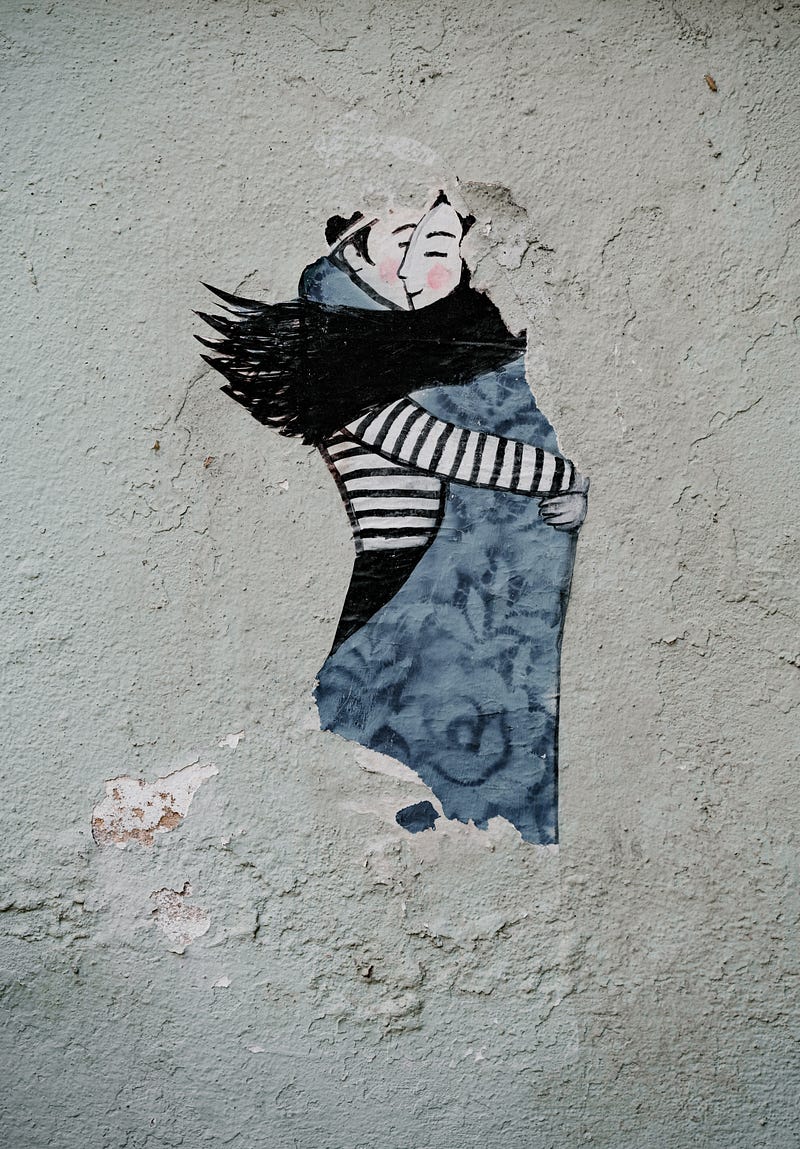I was walking back from the shopping center when I saw two girls sitting against a shop window playing a song through their mobile phone. A piece of cloth was spread before them for money.
They seemed to be from a good home. Well-dressed and well-fed.
I went past them, disgusted, thinking they must have found busking an easy way to raise money to afford something they wanted to buy.
I had only gone a few steps when something made me stop. The music they were playing was beautiful and sad. It was not the usual boisterous kind of music teenagers would listen to on their mobile phones.
I turned and had a closer look at their faces. They looked solemn. What if something is going wrong in their lives? What if someone is sick in their home and they need the money? I opened my wallet and placed a few dollars on the cloth in front of them. Their faces lit up, and they mouthed thank you. I smiled back and went my way of feeling better. I had done my act of kindness for the day.
Then a thought stopped me in tracks.
It is easier to be kind to strangers than to our loved ones.
I once read an article where the writer lamented that she was disgusted by the way she was treating her children.
If someone bumps into me in shops, we both say sorry, smile, and go our way. But at home, when my kid bumps into me in the morning rush, I get angry and lash out. Can’t you see where you are going? Look what you have done; you have made me spill tea all over my blouse.
We are much harsher, unforgiving, and cruel with our own than with people we meet on the street.
Relationships are frail. The reason they break because we start taking them for granted. We stop giving each other the common courtesy we so easily extend to strangers.
We need to be extra kind to our loved ones.
Do you know who else we are harsher with?
Ourselves.
We reserve the harshest judgment for ourselves. We remember all our faults. We blame and shame ourselves all the time.
We abandon ourselves and admire everyone else. We readily accept other’s mistakes, but we can’t seem to forgive our own. We play them in our minds over and over again.
We don’t mind others being lesser beings but can’t accept anything less than perfection from ourselves. No wonder we suffer from depression, anxiety, and fear of failure.
Like charity, kindness should start at home.
It is easy to buy food for a homeless person, and many people do that, but it is hard to ring your estranged sister and tell her that you miss her, and you love her.
We all like to think that we are kind at heart, that we don’t do any harm to anyone, but by default, our mind is finding faults in others. We only see flaws, bad traits, and annoying habits in others. Yet people never forget if you have been kind to them.
Kindness is the only thing you remember about people.
Let’s do a little test to prove that.
- Tell the names of the five wealthiest people in the world.
- Who were the five best football players last year?
- Tell the names of the people who circumnavigated the globe.
- Who conquered the Everest last year?
Most people can’t answer these questions. Now let me ask you another set of questions.
- Tell the names of the five best teachers in your life.
- Who believed in you when you didn’t believe in yourself.
- Who forgave you when you did something wrong.
- Who guided you when you didn’t know what to do?

How To Be Kind To Those You Love
Kindness is such a big thing that sometimes it is hard to know what it exactly is. And yet kindness can be portrayed in small gestures.
Kindness is to listen to someone. Really listen to them.
Kindness is to smile at someone and say hello and wait for their response.
Kindness is to tell your loved one that you love them.
Kindness is to give an honest compliment.
Kindness is to tap on someone’s shoulder and saying, “Nevermind.”
Kindness is to offer a helping hand to those who can’t pay you back.
Kindness is to connect with someone’s soul and to make them feel that they matter.
Kindness is to be accepting; not only of others but of ourselves too.
No one knows kindness better than Orly Wahba, who took it upon herself to make kindness viral.
In 2011, a young middle school teacher started a movement, The Kindness Boomerang, to inspire and motivate people to make the world a kinder place.
Orly Wahba began her career as a middle school teacher, empowering children to embrace unity, build self-value, and use the power and magic of kindness to influence the world for good.
Her award-winning Kindness Boomerang film went viral receiving 100 million views.
We are all striving to become our better selves. We are trying to become better employees, leaders, teachers, doctors, nurses. But being a kinder-self surpasses them all.
A goal worthy of striving for is making sure anyone who comes into our contact remember us for our kindness.
Photo by Matt Collamer on Unsplash